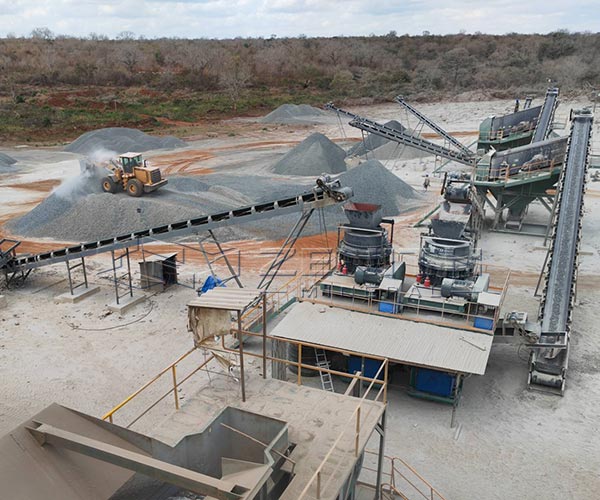
Understanding Crusher Machines and Their Price Range in 2025
Crusher machines are essential in mining, construction, and recycling industries for breaking down large materials into smaller, manageable sizes.
The cost of crusher machines varies widely based on type, size, capacity, and additional features.
Knowing the price ranges and factors influencing costs helps buyers make informed decisions.
Jaw Crushers: Pricing for Primary Crushing Applications
Jaw crushers are widely used for primary crushing in mining and construction. They are known for their reliability and ability to handle hard materials.
- Small Jaw Crushers (10-50 tons/hour): These are suitable for small-scale operations, such as recycling or small quarries. Prices range from $10,000 to $50,000, depending on brand and features.
- Medium Jaw Crushers (50-200 tons/hour): Used in mid-sized quarries or construction sites, these cost between $50,000 and $150,000.
- Large Jaw Crushers (200+ tons/hour): Designed for high-capacity operations, prices can range from $150,000 to $500,000 or more for premium models with advanced automation.
For example, a basic small jaw crusher from a lesser-known brand may cost around $15,000, while a high-end model from a reputable manufacturer like Metso or Sandvik could exceed $400,000 for large-scale applications.
Cone Crushers: Costs for Secondary and Tertiary Crushing
Cone crushers are typically used for secondary or tertiary crushing, offering finer material output. Their prices reflect their specialized design and precision.
- Small Cone Crushers (50-100 tons/hour): Entry-level models for small to medium operations cost between $30,000 and $100,000.
- Medium Cone Crushers (100-300 tons/hour): These are common in mid-sized quarries, with prices ranging from $100,000 to $300,000.
- Large Cone Crushers (300+ tons/hour): High-capacity models for large-scale mining or aggregate production can cost $300,000 to $1,000,000.
Additional features, such as hydraulic adjustments or anti-spin technology, can add $20,000 to $100,000 to the base price, depending on the model.
Impact Crushers: Pricing for Versatile Crushing Needs
Impact crushers are versatile machines used for both primary and secondary crushing, particularly in recycling and softer material applications.
- Small Impact Crushers (20-100 tons/hour): Suitable for small recycling plants or construction sites, these range from $20,000 to $80,000.
- Medium Impact Crushers (100-250 tons/hour): Used in larger recycling or quarry operations, prices fall between $80,000 and $250,000.
- Large Impact Crushers (250+ tons/hour): High-capacity models for industrial applications cost $250,000 to $700,000.
Mobile impact crushers, which offer portability, tend to be 20-30% more expensive than stationary models due to their tracked or wheeled designs.
Gyratory Crushers: Costs for High-Capacity Mining Operations
- Gyratory crushers are primarily used in large-scale mining operations for primary crushing of hard materials. Their robust design results in higher costs.
- Small Gyratory Crushers (200-500 tons/hour): These are less common and cost between $200,000 and $500,000.
- Large Gyratory Crushers (500+ tons/hour): Designed for major mining operations, prices range from $500,000 to $2,000,000 or more.
For instance, a high-capacity gyratory crusher from a top-tier brand like FLSmidth could exceed $1.5 million, especially with features like automated control systems.
Mobile vs. Stationary Crushers: Price Comparison Analysis
The choice between mobile and stationary crushers significantly impacts cost. Mobile crushers offer flexibility, while stationary crushers are typically more affordable.
Stationary Crushers: These are generally 20-40% cheaper than mobile counterparts. For example, a stationary jaw crusher might cost $50,000, while a mobile version of the same capacity could be $70,000-$100,000.
Mobile Crushers: Tracked or wheeled designs increase costs due to added mobility features. Prices for mobile crushers start at $50,000 for small models and can exceed $1 million for large, fully automated units.
Mobile crushers are ideal for projects requiring frequent relocation, but their higher upfront cost may not suit all budgets.
Additional Costs to Consider When Purchasing a Crusher
Beyond the base price, several additional costs should be factored into your budget to avoid surprises.
- Installation and Setup: Depending on the machine’s complexity, installation can cost $5,000 to $50,000, including foundation work and electrical setup.
- Maintenance and Spare Parts: Annual maintenance costs can range from $5,000 to $20,000, with spare parts like wear plates adding $1,000-$10,000 per replacement.
- Shipping and Import Fees: For international purchases, shipping and duties can add 5-15% to the total cost.
- Operator Training: Training programs for safe operation may cost $1,000-$5,000, depending on the provider.
For example, importing a $100,000 crusher from overseas could incur $10,000-$15,000 in shipping and customs fees, significantly impacting the total investment.
Price List Summary for Common Crusher Machine Types
Here’s a consolidated price list for quick reference, based on average market prices as of 2025:
Jaw Crushers:
- Small (10-50 tons/hour): $10,000-$50,000
- Medium (50-200 tons/hour): $50,000-$150,000
- Large (200+ tons/hour): $150,000-$500,000
Cone Crushers:
- Small (50-100 tons/hour): $30,000-$100,000
- Medium (100-300 tons/hour): $100,000-$300,000
- Large (300+ tons/hour): $300,000-$1,000,000
Impact Crushers:
- Small (20-100 tons/hour): $20,000-$80,000
- Medium (100-250 tons/hour): $80,000-$250,000
- Large (250+ tons/hour): $250,000-$700,000
Gyratory Crushers:
- Small (200-500 tons/hour): $200,000-$500,000
- Large (500+ tons/hour): $500,000-$2,000,000
- Mobile Crushers: Add 20-30% to the cost of equivalent stationary models.
Tips for Getting the Best Value on Crusher Machine Purchases
To maximize your investment, consider the following strategies when purchasing a crusher machine:
- Compare Brands: Research reputable brands like Metso, Sandvik, or Terex for reliability, but also explore lesser-known manufacturers for cost savings.
- Buy Used Equipment: Used crushers in good condition can cost 30-50% less than new models, though they may require more maintenance.
- Negotiate with Suppliers: Many suppliers offer discounts or financing options, especially for bulk purchases or long-term contracts.
- Consider Long-Term Costs: Energy-efficient models may have a higher upfront cost but save money on fuel or electricity over time.
By carefully evaluating your needs and exploring all options, you can find a crusher machine that balances cost and performance effectively.

